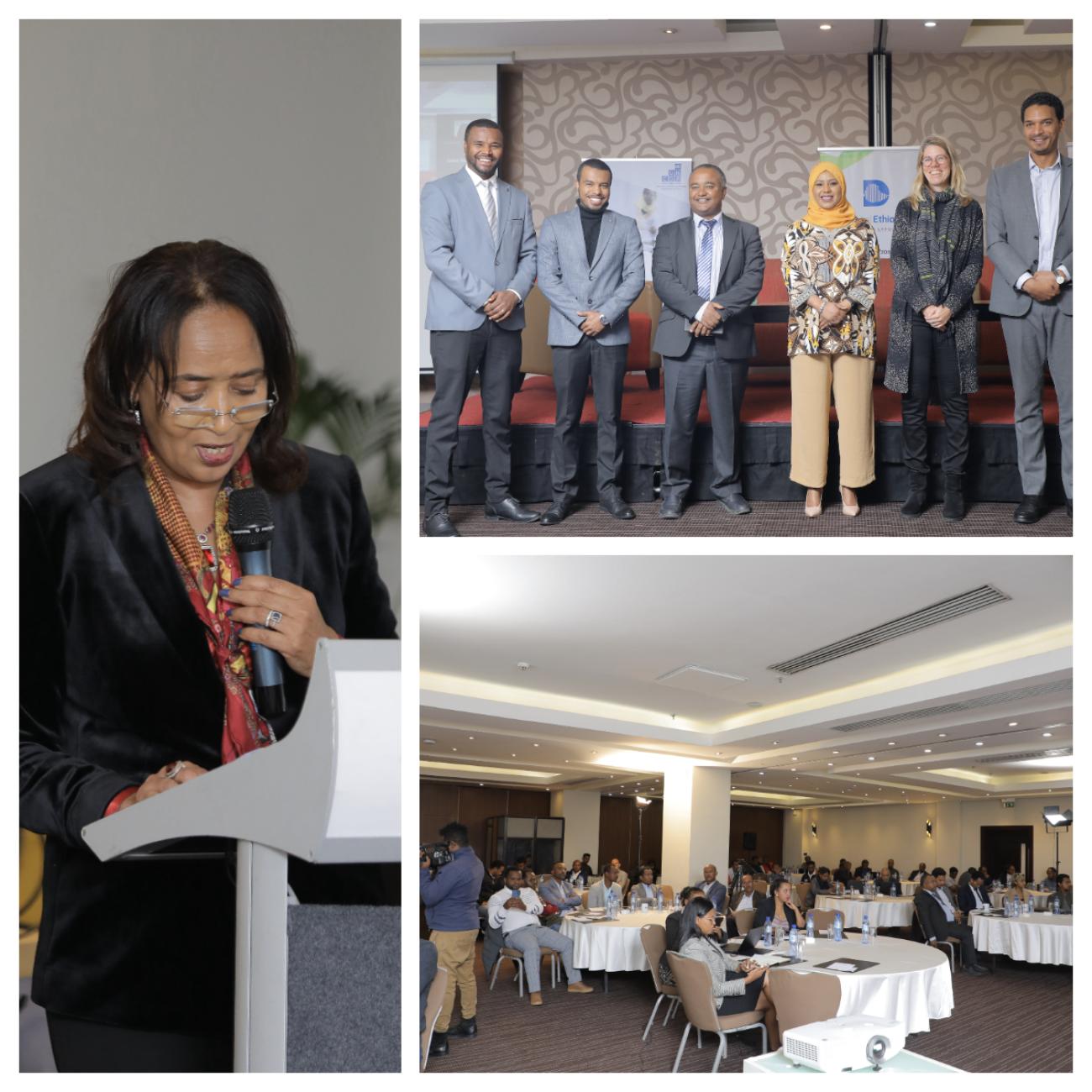Stakeholders in Ethiopia Commit to Greater Collaboration on Digital Skill and Literacy Initiatives

UNCDF 's partners express their commitment to greater collaboration in harnessing the benefit of the life-changing impact of digitization.
Participants of a digital skill and literacy event organized by the UN Capital Development Fund (UNCDF) and the Ministry of Innovation and Technology (MInT) expressed their commitment to greater collaboration in ensuring that Ethiopian citizens can fully participate and benefit from the life-changing impact of digitization.
Some of which include ease of access to essential healthcare, increased productivity for smallholder farmers, increased employability among the youth and equal and significant participation of women in the digital economy.
They also agreed that fair access and equal participation in building citizens' digital skills are critical to boosting Ethiopia's digital economy. Limited internet access and electricity coverage in rural communities, affordability of electronic devices, inadequate training opportunities and low educational levels, particularly among women and youth, are among the major barriers to the country's digital skills drive.
In its Digital Ethiopia 2025 Strategy, the government highlights that digital upskilling is crucial to its digital transformation agenda. As part of the strategy, MInT developed the Digital Ethiopia Learning platform, which UNCDF is supporting to enhance digital learning in the country. MiNT, in collaboration with UNCDF, has also rolled out the IBM DNA Platform, which provides free standardized digital training.
Speaking at the stakeholders' event on how the country can address the barriers to its digital drive, H. E. Huria Ali, State Minister at MInT, emphasized that "building digital literacy for citizens is the responsibility of all stakeholders and requires better cooperation and coordination. We must all actively participate, explore the gaps and strengths of our sector, think about our role in the process of building digital literacy, raise awareness about digital literacy in general, get to know each other better and strengthen our cooperation."
Digital skills and literacy are key factors in expanding digital financial solutions, for example, and impact the future of work. The European Union (EU) captures these two factors in its EU Digital Transformation Pillars and works actively with UNCDF to help strengthen the country's digital capacities.
Worknesh Mekonnen Gonet, Director, and Representative to the African Union (AU) - United Nations Office for Project Services (UNOPS) Ethiopia, who represented the UN Resident Coordinator at the event, reminded stakeholders of the transformative effects of literacy on societies and countries. "Literacy propels individuals along a journey of financial health, making them increasingly able to manage their situation better, access necessary services, be resilient in unexpected situations, and plan their future. Developing literacy – both financial and digital – not only enables people to access and use services, but it can also help them to make decisions because they understand and trust the systems that they are using."
As per the 2030 Agenda, inclusion is at the center of achieving sustainable development and ensuring that no one is left behind in the digital era. Therefore, stakeholders from digital training institutes, the private ICT industry, institutions of higher learning, the digital financial services sector, development organizations and government agencies agreed to work together to ensure everyone is included.
UNCDF's partnership with MInT and other stakeholders in Ethiopia aims to improve lives, particularly that of the marginalized. And as part of UNCDF, EU and OACP's broader "Digital Financial Services for Resilience (DFS4Res) initiative, digital training will be delivered to build citizens' capability and capacity to use digital services and digital financial services in particular.



